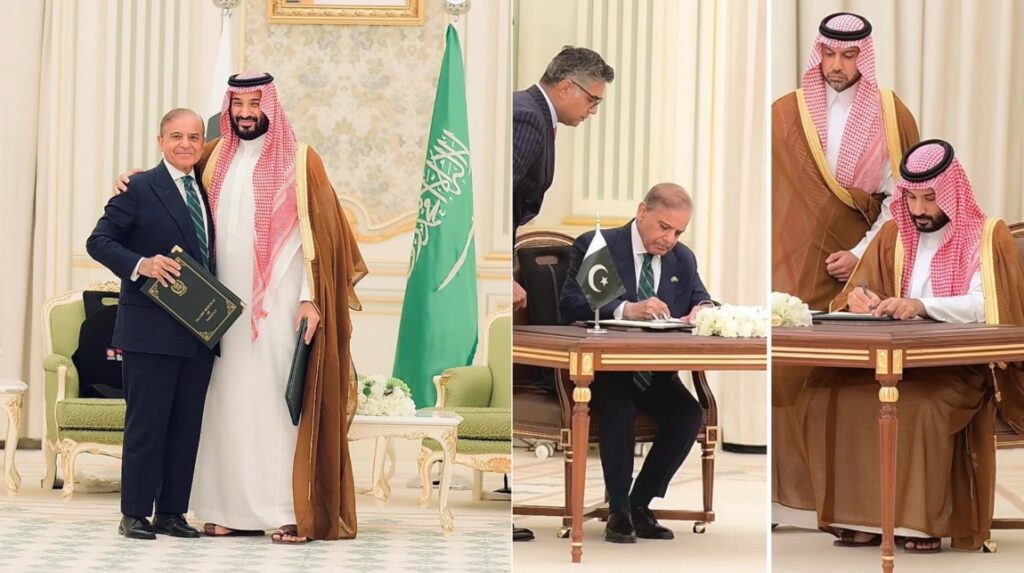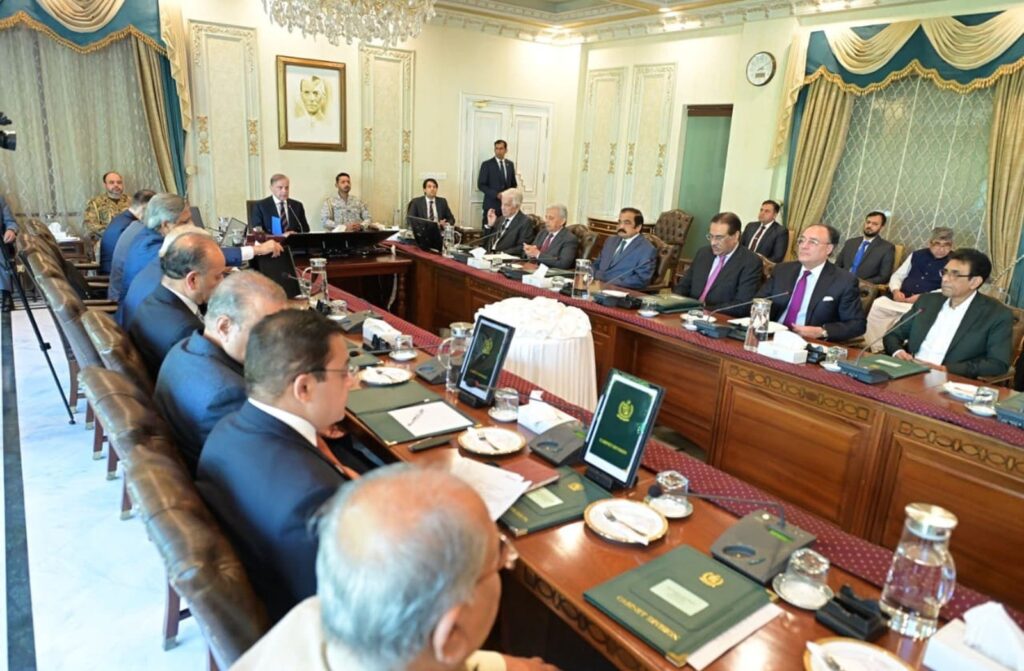APP

Islamabad: The federal cabinet, chaired by Prime Minister Shehbaz Sharif on Thursday, approved the Pakistan–Saudi Arabia Strategic Defence Cooperation Agreement, marking a significant step toward deepening bilateral security and defence ties between the two nations.
During the meeting held at the Prime Minister’s House, Shehbaz briefed the cabinet on his recent official visits to Saudi Arabia, Qatar, Malaysia, and the United Nations General Assembly, highlighting their outcomes on economic, diplomatic, and security fronts.
Cabinet members lauded the leaderships of both Pakistan and Saudi Arabia for strengthening bilateral cooperation and reaffirmed their commitment to advancing defence collaboration under the newly ratified pact.
The cabinet also approved the WAPDA Security Force Act 2025, aimed at establishing a specialized security force to safeguard major dams and hydropower projects across the country. The move follows recommendations from the Ministry of Water Resources and seeks to enhance protection for critical national infrastructure.

In another decision, the cabinet endorsed a proposal from the Ministry of National Food Security and Research to donate 15 non-operational aircraft of the Department of Plant Protection—including eight Cessna and seven Fletcher planes—to educational and exhibition institutions for training and display purposes. The remaining four airworthy Beavers will continue to be used in anti-locust operations. The decision follows unsuccessful attempts to auction the aircraft in previous years.
The cabinet further ratified the Economic Coordination Committee (ECC) decisions from its meeting on October 2, 2025, and endorsed outcomes of the Cabinet Committee on Legislative Cases (CCLC) held on September 22, 2025. However, it was decided that proposed amendments to the Alternate Medicines and Health Products Enlistment Rules, 2014, would be reviewed separately by a special cabinet committee.
Earlier in the meeting, Prime Minister Shehbaz Sharif paid tribute to the armed forces for their sacrifices in the fight against terrorism, vowing that “terrorists and their facilitators will not be spared.”
He noted that recent operations had seen Lieutenant Colonel Junaid Tariq, Major Tayyab Rahat, and Major Sibtain Haider, among others, embrace martyrdom while fighting militants in Orakzai. “Our brave soldiers are defending the nation at the cost of their lives; their sacrifices have drawn a line with their blood that cannot be crossed,” he remarked.
Shehbaz emphasized that Pakistan’s economic and diplomatic progress would remain incomplete without the complete elimination of terrorism, reiterating the government’s resolve to protect national sovereignty.
The prime minister also shared details of his recent meeting with U.S. President Donald Trump during the UN General Assembly, where discussions focused on Palestine, trade, and counterterrorism. He reaffirmed Pakistan’s long-standing stance on the Palestinian cause, calling for an immediate ceasefire in Gaza and the right to self-determination for the Palestinian people.
Highlighting diplomatic achievements, Shehbaz praised Deputy Prime Minister Ishaq Dar and his team for strengthening Pakistan’s international standing. He noted that Pakistan’s reputation had improved globally, citing Bloomberg’s recent ranking, which placed Pakistan as the second-best emerging economy after Turkey.
He further expressed satisfaction over the 11.3 percent rise in remittances, which reached $3.2 billion in September 2025, and welcomed Malaysia’s recent decision to import $200 million worth of halal meat from Pakistan.























